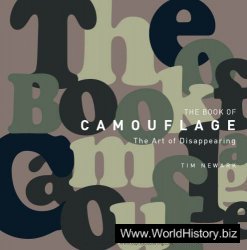Here can be no academic subject for which the general public has such an inexhaustible appetite as Egyptology, and no period more so than the age of the pyramids. But the popular writings in this area are notoriously variable. while there is no shortage of reliable and accessible surveys by leading scholars in the field, neither does one have to look far on book lists to find an abundance of ‘pyramidology’ and other nonsense which also finds a wide audience. It was therefore a very welcome opportunity that arose when Helen Strudwick proposed that the 2009 Old Kingdom Art and Archaeology conference be held at the Fitzwilliam Museum in Cambridge so as to coincide with our annual Glanville Lecture on Egyptology, thus bringing the fruits of recent excavation and research by leading scholars to a wide general audience. he resulting event, held on 20—23 May 2009, consisted of a three-day meeting of specialist researchers, followed by a day of talks by some of the foremost experts in the Old Kingdom, to which the public was also invited, all culminating that evening in the Glanville Lecture delivered by Dr Jaromir Malek on ‘A city on the move: Egypt’s capital in the Old Kingdom’. his volume publishes all but three of the twenty-seven papers presented at the conference, plus one additional ofiering.
He Fitzwilliam Museum is fortunate to have one of the most important collections of Egyptian antiquities in the UK and thus provides a very appropriate setting for the OKAA conference. he earliest Egyptian object to arrive — a very fine hird Intermediate Period coffin set—was given in 1822, only six years after the bequest of Viscount Fitzwilliam created the museum, and a quarter century before the building erected to house its collections first opened its doors. Since then the Museum’s Egyptian collection has grown to nearly 17,000 objects, of which some one thousand are on display. he Egyptian galleries were refurbished in 2006 and remain the most popular in the museum.
Stephen Glanville, after whom the lecture is named, was Professor of Egyptology at Cambridge (1946—1956), as well as being chairman of the Fitzwilliam’s Syndicate and Honorary Keeper of Antiquities. Glanville saw it as essential that the Museum’s Egyptian collections were actively used in teaching—as is still the case today — and that they continue to grow through acquisition. His commitment to engaging the public in the fascinating discoveries of professional Egyptologists has been continued by the Museum by the holding of a lecture bearing his name since 1977. We were delighted that Jaromir Malek accepted the invitation to give the 2009 lecture; and that so many distinguished scholars of Old Kingdom Egypt were able to attend the conference with which it was paired.
Special thanks are due to Helen Strudwick, at the time Senior Assistant Keeper, Antiquities, and Nigel Strudwick, the organisers of the conference, who have also edited the papers published here.
Timothy Potts Director
He Fitzwilliam Museum Cambridge




 World History
World History









